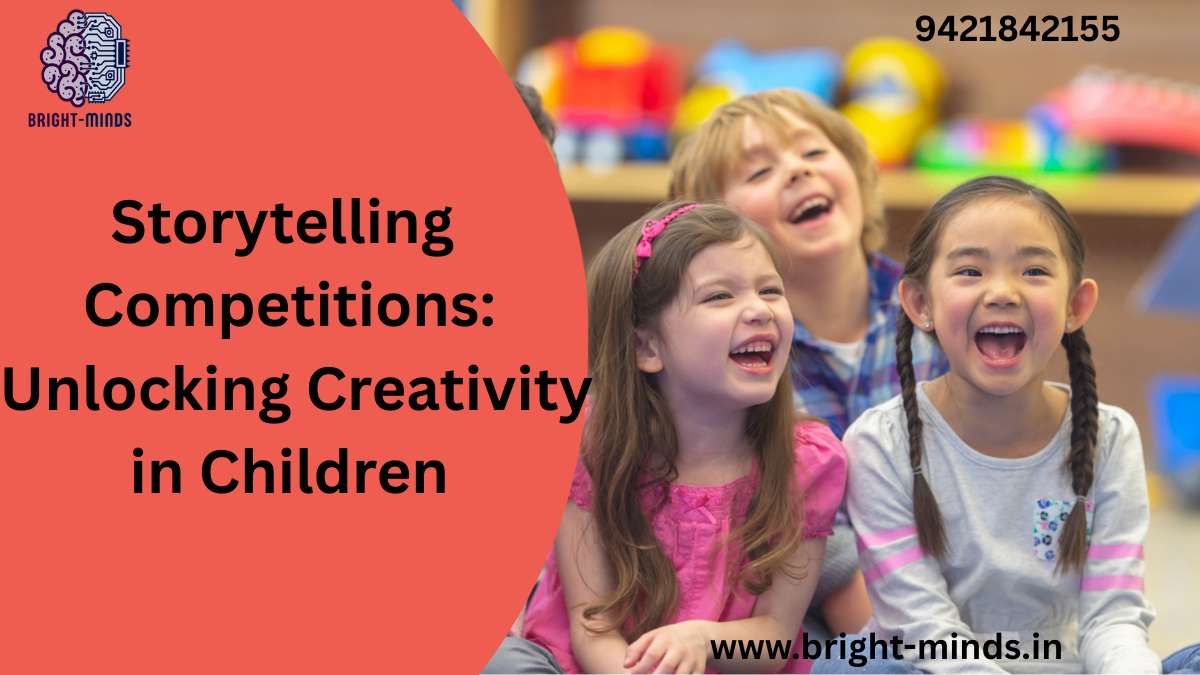In a world overflowing with digital distractions, nurturing creativity in children has never been more important. Among the most powerful tools to spark imagination and build essential life skills is an age-old tradition: storytelling. And when that tradition meets a touch of friendly competition, something magical happens—children come alive with ideas, confidence, and an eagerness to communicate.
Storytelling competitions are more than just fun events; they are transformative experiences. Whether you’re a parent, educator, or working professional exploring ways to engage with youth development, understanding the value of storytelling can unlock a world of potential—not just for kids, but for our society at large.
Why Storytelling Matters More Than Ever
Storytelling isn’t just entertainment—it’s a fundamental human skill. From bedtime tales to cultural myths, stories shape how we learn, connect, and imagine.
For children, storytelling:
- Boosts language and communication skills
- Encourages creativity and imagination
- Improves memory and comprehension
- Builds confidence and public speaking abilities
- Fosters empathy and emotional intelligence
When children participate in storytelling competitions, they learn to structure thoughts, articulate emotions, and speak confidently—skills that are increasingly vital in our fast-paced, interconnected world.
Storytelling Competitions: What Are They?
At their core, storytelling competitions are structured events where children craft and present original or adapted stories in front of an audience or panel of judges. These events can be held in schools, community centers, libraries, or online platforms.
Types of storytelling competitions:
- Oral storytelling: Children narrate stories aloud with expression and body language.
- Written storytelling: Emphasis is on narrative structure, grammar, and creativity in written form.
- Digital storytelling: Combining video, voiceover, and visuals for multimedia storytelling.
These formats encourage kids to think critically, express themselves creatively, and engage with others’ ideas constructively.
Market Trends & Industry Insights
Storytelling competitions have seen a major resurgence in recent years, thanks in part to increased focus on holistic education and the rise of online learning platforms.
Key trends include:
- Integration into school curricula: More schools now treat storytelling as an academic and extracurricular focus.
- Tech-powered platforms: Competitions are moving online, enabling broader participation and new formats like animated or virtual storytelling.
- Corporate involvement: Companies are sponsoring storytelling contests to promote education, literacy, and community engagement.
In fact, the global edtech market—valued at over $340 billion in 2025—is increasingly leaning on creative tools like storytelling to enhance learning outcomes. These platforms often include storytelling modules that improve literacy, cognitive development, and digital fluency.
Real-World Applications of Storytelling Skills
You might wonder—what can storytelling do beyond the stage? The answer: almost everything.
Children who master storytelling early are more likely to excel in:
- Public speaking and presentations
- Creative writing and journalism
- Marketing, advertising, and branding careers
- Film, theater, and digital media production
- Leadership and teamwork through better communication
Take Maya, a 10-year-old who started with school storytelling contests. Her passion grew into writing short stories, then coding interactive tales. Today, she’s building her own storytelling app—blending tech and creativity. Storytelling competitions planted the seed.
Tips to Encourage Your Child’s First Storytelling Adventure
Ready to help your child—or a child you mentor—join the storytelling journey? Here are practical steps to get started:
✅ 1. Create a Story-Rich Environment
Surround children with books, audiobooks, and storytelling videos. Exposure fuels imagination.
✅ 2. Practice Active Listening
Encourage kids to listen and retell stories. This sharpens memory and narrative skills.
✅ 3. Inspire, Don’t Instruct
Prompt them with questions like “What if a dragon lost its wings?” Let creativity flow without rigid rules.
✅ 4. Use Story Prompts
Story cubes, images, or even random objects can kick-start the storytelling process.
✅ 5. Rehearse and Record
Help them practice and even record their stories. Watching themselves boosts self-awareness and confidence.
✅ 6. Celebrate Every Effort
Whether they win or not, each attempt is a step toward growth. Celebrate their courage to speak and share.
How Employees & Organizations Can Get Involved
If you’re a company employee or team leader, consider organizing or sponsoring storytelling competitions in schools or communities. It’s a powerful way to:
- Promote literacy and communication
- Contribute to CSR initiatives
- Boost employee engagement through volunteering
Encouraging creativity in kids today builds the emotionally intelligent leaders of tomorrow. When your company becomes part of that story, the impact goes far beyond business.
Final Thoughts: Make Storytelling Part of Your Child’s Success Story
Storytelling competitions are more than just contests—they’re platforms for self-expression, learning, and growth. They cultivate not only imagination but resilience, empathy, and the courage to stand up and speak.
So whether you’re a parent looking for new ways to inspire your child, an educator shaping young minds, or a professional seeking meaningful ways to give back—storytelling is your gateway.
Take the first step. Explore our Creative Learning Programs and Storytelling Courses designed to nurture young minds and empower the next generation of storytellers.
Also Read:
https://bright-minds.in/unlocking-word-meaning-for-class-ukg-english-to-hindi/

